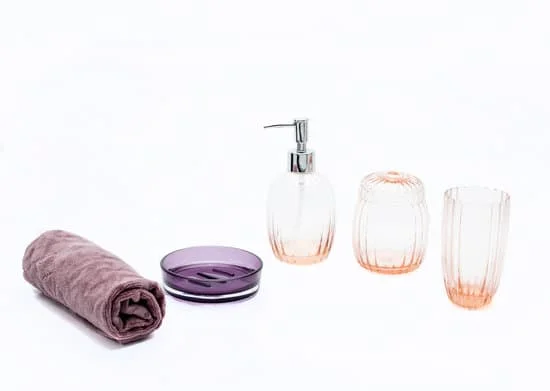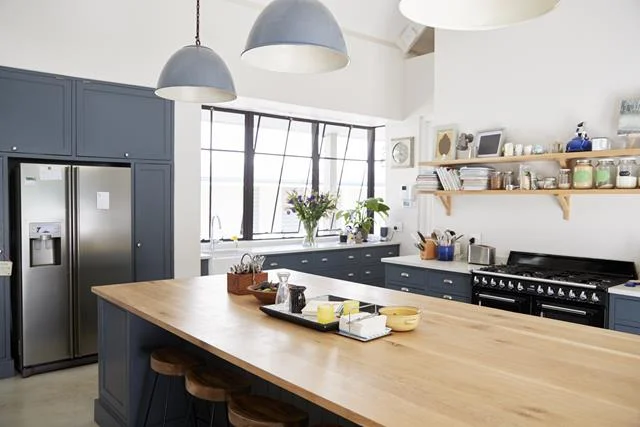Are you wondering, “how do I become a home decor seller?” With the increasing demand for unique and stylish home decor products, the home decor industry presents a lucrative opportunity for those with a passion for interior design. From furniture and textiles to art and accessories, the market for home decor is vast and diverse, offering plenty of potential for success.
The home decor industry encompasses a wide range of products, styles, and trends, catering to various tastes and preferences. Whether your interest lies in vintage, modern, or eclectic designs, there is something for everyone in the world of home decor. As more people prioritize creating aesthetically pleasing living spaces, the demand for home decor products continues to grow, making it an exciting time to venture into this field.
In this introductory article on becoming a home decor seller, we will explore the essential steps and strategies needed to thrive in this competitive industry. From educational requirements and building a portfolio to establishing supplier relationships and developing an online presence, we will guide you through the process of launching your own successful home decor business.
Whether you’re considering starting your own small-scale operation or aiming to build a larger enterprise, this comprehensive guide will provide valuable insights and practical advice for aspiring entrepreneurs in the home decor industry.
Education and Experience Requirements
Becoming a successful home decor seller requires a combination of education and experience in the field. While there are no specific degree requirements for this career, having a background in interior design, visual arts, or business can be beneficial. Understanding design principles, color theory, and current trends in the home decor industry can give you a competitive edge. Additionally, having strong communication and negotiation skills is essential for building relationships with clients and suppliers.
For those looking to gain more knowledge and expertise in home decor, there are various educational courses and training programs available. Many colleges and universities offer interior design programs that cover topics such as space planning, furniture design, and textiles.
Online courses and workshops focused on home decor trends and marketing strategies can also provide valuable insights for aspiring home decor sellers. Furthermore, gaining hands-on experience through internships or part-time work with established home decor professionals can help you develop practical skills and build your portfolio.
In order to stand out in the competitive home decor industry, it’s important to continuously educate yourself on new trends and techniques. Attending industry events, trade shows, and networking with other professionals can provide valuable learning opportunities. By staying informed and continuously improving your skills, you can position yourself for success as a home decor seller.
| Educational Requirements | Experience Requirements |
|---|---|
| No specific degree required but beneficial to have background in interior design or visual arts | Strong communication skills essential for building relationships with clients and suppliers |
| Knowledge of design principles, color theory, and current trends advantageous | Hands-on experience through internships or part-time work recommended |
| Various educational courses available for interior design, home decor trends & marketing strategies | Continuous learning through industry events & networking crucial for success |
Building a Portfolio
To become a successful home decor seller, it is crucial to develop a strong and cohesive portfolio of products that showcases your unique aesthetic. Here are some tips on how to build a portfolio that will impress potential clients and set you apart in the competitive home decor industry:
1. Curate a Diverse Collection: When creating your portfolio, it’s important to include a diverse range of home decor products to demonstrate your versatility and range as a seller. Consider including items such as wall art, decorative accessories, furniture pieces, and textiles to showcase the breadth of your offerings.
2. Develop a Unique Aesthetic: One way to stand out in the home decor market is by developing a clear and unique aesthetic for your portfolio. Whether you specialize in modern minimalism, bohemian chic, or vintage-inspired designs, having a distinct style will help attract clients who resonate with your vision.
3. High-Quality Photography: The presentation of your products is just as important as the items themselves. Invest in professional photography or hone your own skills to capture high-quality images that effectively showcase the beauty and detail of each piece in your portfolio.
By following these guidelines for building an impressive portfolio, you can effectively showcase your expertise as a home decor seller and attract potential clients who are looking for unique and stylish products for their homes.
Remember that every item you include should reflect the quality and style that defines your brand as you establish yourself in this competitive market.
Start with small steps like reading industry-related publications, watching videos related to trends or designs sold online so you have all tools necessary on offer whenever they may be needed.
Establishing Relationships With Suppliers
When starting a home decor business, one of the essential steps is establishing strong relationships with suppliers. Your choice of suppliers can significantly impact the quality, uniqueness, and pricing of your products. The first step in finding reliable suppliers is conducting thorough research. You can attend trade shows, network with other industry professionals, or simply search online to find potential suppliers for your home decor products.
Once you have identified potential suppliers, it’s crucial to carefully vet each one to ensure they can meet your business needs. Look for suppliers who offer competitive pricing, high-quality products, and reliable shipping and delivery options. When reaching out to these potential partners, be prepared to negotiate terms and prices. Building a good relationship with your suppliers from the beginning can lead to preferential treatment, better deals, and improved communication down the line.
One effective way of presenting yourself as a serious business owner during negotiations with potential suppliers is by having a professional portfolio ready to showcase your plans for your home decor business. This displays not only what type of product they could expect from you but also shows them that you are taking this seriously. Building strong relationships with quality suppliers can set the foundation for a successful home decor business venture.
| Supplier Criteria | Description |
|---|---|
| Pricing | Look for competitive pricing that allows you to maintain a profitable margin on your products |
| Product Quality | Ensure that the supplier offers high-quality home decor items that meet your standards |
| Shipping and Delivery | Choose suppliers who provide reliable shipping methods and on-time delivery of products |
Setting Up an Online Presence
In today’s digital age, having a strong online presence is crucial for any business, and the home decor industry is no exception. Whether you are selling handmade crafts, vintage finds, or modern furniture, setting up an online store can significantly expand your customer reach and increase sales. Here are some steps to get you started:
1. Choose a platform: Decide whether you want to sell on a third-party platform like Etsy or Amazon Handmade, or if you want to create your own independent website using platforms like Shopify or Squarespace.
2. Create compelling product listings: Invest time in creating visually appealing and informative product listings with high-quality images and detailed descriptions. Showcase the uniqueness of your home decor products to entice potential buyers.
3. Optimize for search engines: Make sure that your online store is optimized for search engines by using relevant keywords in your product titles and descriptions. This will help potential customers find your products when they search for home decor items online.
4. Engage with social media: Use social media platforms such as Instagram, Facebook, and Pinterest to showcase your products and connect with potential customers. Regularly posting engaging content can help drive traffic to your online store.
5. Utilize email marketing: Build an email list of interested customers and send out regular newsletters with updates on new products, promotions, and design tips. Email marketing can be a powerful tool for driving sales and building customer loyalty.
By establishing a strong online presence, you can reach a wider audience of potential customers who are looking for unique home decor pieces. With the right digital marketing strategies in place, you can grow your home decor business and establish yourself as a reputable seller in the industry.
Networking and Marketing
Building Industry Relationships
One of the key factors in becoming a successful home decor seller is building strong relationships within the industry. This can include connecting with suppliers, interior designers, home stagers, and other professionals who can help you grow your business. Attending industry events, joining professional organizations, and participating in trade shows are all great ways to network with others in the field. By building these relationships, you can gain valuable insights, advice, and potential business opportunities.
Promoting Your Business
In addition to in-person networking, it’s essential to effectively market your home decor business to reach potential customers. Utilizing social media platforms such as Instagram, Pinterest, and Facebook can allow you to showcase your products and connect with a larger audience.
Creating visually appealing content that showcases your unique aesthetic and product offerings is crucial in attracting potential clients. Additionally, consider investing in digital marketing strategies such as search engine optimization (SEO) and online advertising to increase your visibility online.
Utilizing Networking Opportunities
Attending industry events and trade shows not only allows you to connect with other professionals but also provides the opportunity to showcase your products to a wider audience. Consider participating in local home decor expos or craft fairs to attract new customers and build brand recognition within your community. These events also provide the chance to collaborate with other vendors or even interior designers looking for unique pieces for their clients’ homes.
By strategically prioritizing networking and marketing efforts within the home decor industry, you can position yourself for success as a home decor seller. Building strong relationships with suppliers and industry professionals, promoting your business through social media and events, will help establish a solid foundation for growing your venture into a thriving enterprise.
Legal and Financial Considerations
To become a successful home decor seller, it’s important to understand the legal and financial considerations that come with running a business in this industry. From obtaining the right licenses and permits to managing finances and setting prices for your products, there are several key factors to consider.
Obtaining Necessary Licenses and Permits
Before you can start selling home decor products, it’s essential to make sure you have all the necessary licenses and permits in place. The specific requirements may vary depending on your location, so be sure to research what is needed in your area. This may include a business license, reseller’s permit, and other permissions related to selling goods.
Managing Finances
As a home decor seller, it’s crucial to have a good understanding of basic financial management. This includes keeping track of expenses, setting prices for products that cover costs and generate profit, and staying on top of taxes and other financial obligations. Consider working with an accountant or financial advisor to ensure that you are managing your finances effectively.
Setting Prices for Your Products
Determining the right pricing strategy for your home decor products is essential for the success of your business. You’ll need to consider factors such as the cost of materials, labor, overhead expenses, as well as market demand and competition. It’s important to find a balance between setting prices that are competitive yet still provide enough profit margin for your business to thrive. Additionally, take into account any discounts or promotions you may offer while staying profitable.
Overall, taking care of legal and financial considerations from the beginning will set a strong foundation for your home decor business and ensure its long-term success. By understanding licensing requirements, effectively managing finances, and setting appropriate prices for products, you’ll be able to focus on growing your business without unnecessary legal or financial burdens.
Growing Your Home Decor Business
In conclusion, the home decor industry offers a promising opportunity for individuals with a passion for design and an eye for style. With the growing market for home decor products, becoming a home decor seller can be a rewarding and lucrative endeavor. By understanding the education and experience requirements, building a portfolio, establishing relationships with suppliers, setting up an online presence, and networking and marketing effectively, aspiring entrepreneurs can pave the way for success in this field.

One of the most important aspects of becoming a successful home decor seller is to continuously grow your business. This can be achieved by expanding your product line to cater to different tastes and preferences, as well as reaching new markets through targeted marketing strategies. Additionally, maintaining strong customer relationships and building a loyal customer base is essential for long-term success in the industry.
As you embark on your journey to become a home decor seller, it’s crucial to consider the legal and financial aspects of running your business. Obtaining necessary licenses and permits is vital to operate within regulations, while managing finances and setting fair prices for your products will contribute to the sustainability of your business.
By keeping these considerations in mind and staying updated on industry trends, you can position yourself as a successful player in the competitive world of home decor sales.
Frequently Asked Questions
What Do I Need to Start a Home Decor Business?
To start a home decor business, you will need a strong sense of design and style, knowledge of current trends, and a good eye for quality products. You’ll also need to establish reliable suppliers, set up an online presence, and may even need to create your own unique products or designs.
How Profitable Is Home Decor Business?
The profitability of a home decor business can vary depending on various factors such as the quality of your products, pricing strategy, and marketing efforts. Generally, the home decor industry can be profitable due to the high demand for decorative items in the market. Providing unique and trendy products can help increase profitability.
Who Buys the Most Home Decor?
The demographic that buys the most home decor tends to be females between 25-54 years old. These consumers are often interested in decorating their homes according to their personal style preferences and keeping up with current trends.
Additionally, people who have recently moved into new homes or are renovating often purchase a substantial amount of home decor items as well.

Hello, lovely readers! I’m Sheila Collins, and I’m delighted to be your trusted guide on this exciting journey of home improvement, design, and lifestyle. As the founder and editor-in-chief of Home Guide Blog, I’m passionate about all things related to homes, and I’m here to share my knowledge, experiences, and insights with you.





